Some would argue there's not nearly enough going on in the wearable vehicle space. Perhaps not many, if anything's to be gleaned from the echoing silence that greeted this Hungarian wearable belt-o-scooter when it went to Indiegogo for crowdfunding.
There have been fanciful design concepts, certainly, but if we had to nominate the state-of-the-art in wearable vehicles, top honors in 2023 would probably have to go to the "Buggy Rollin" Rollerman suit for unhinged Swiss lunatics with an appetite for gravel, or the Moonwalker motor shoes, which somehow multiply your walking speed.
The idea is nifty enough; an insanely convenient form of transport so neatly designed that you barely even have to carry it. But wearable vehicles tend to suffer from two key issues: they're typically not very wearable, and they're not much chop as vehicles. Otherwise, they're great.
We've seen Munich-based designed Andrea Mocellin's work before; he designed a very neat-looking foldable 26-inch bicycle wheel called the Revolve back in 2018, and developed that idea into a foldable travel wheelchair called the Revolve Air, that folds down small enough for an overhead baggage compartment.
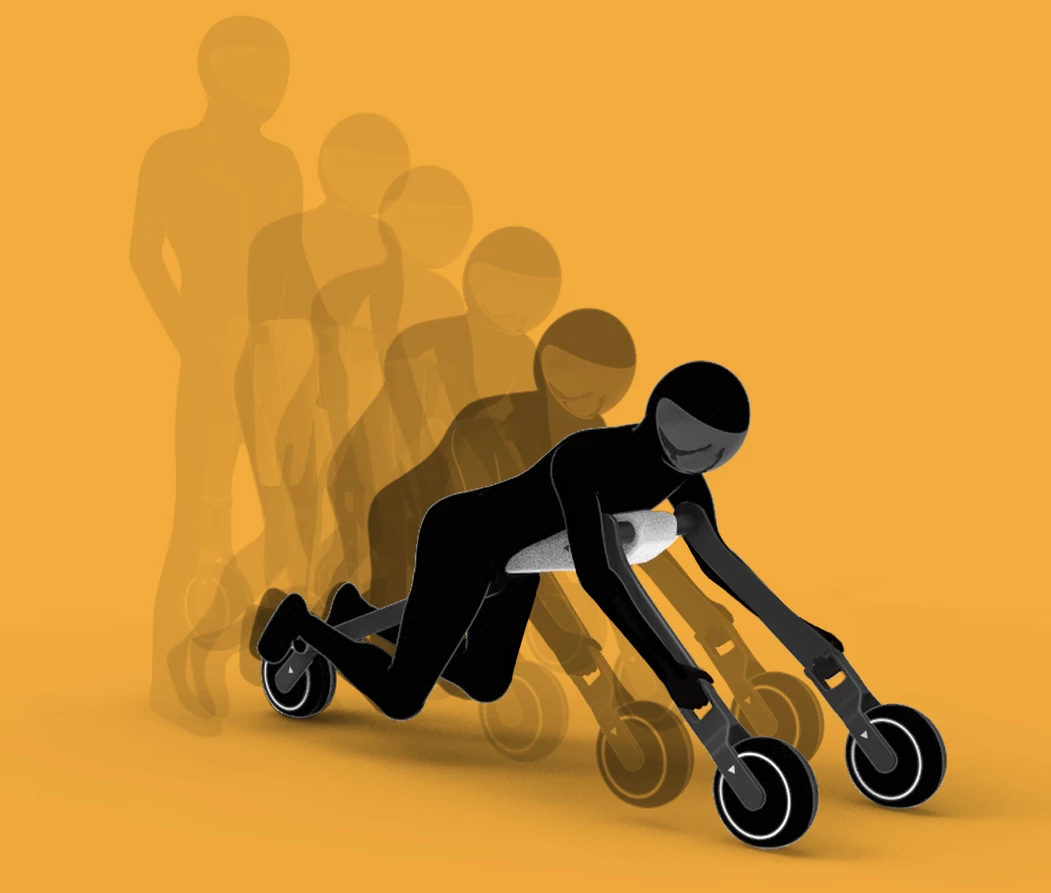
Prior to that, according to his LinkedIn, he's been a senior designer at NIO, Granstudio, Maserati, Alfa Romeo, Pininfarina, and on the Lilium jet, one of the world's sexist-looking eVTOL aircraft. I think we can all agree, that looks like a sufficient pedigree to bring into the wearable vehicle space.
And so to the Exo-Line, a three-wheeled electric vehicle that balances the rider's weight on a precipitously narrow chest-rest and sends them zipping down the street head-first. The ergonomics appear challenging for the ladies, and flat-out punitive for the gentlemen. Cut lunches will be served.
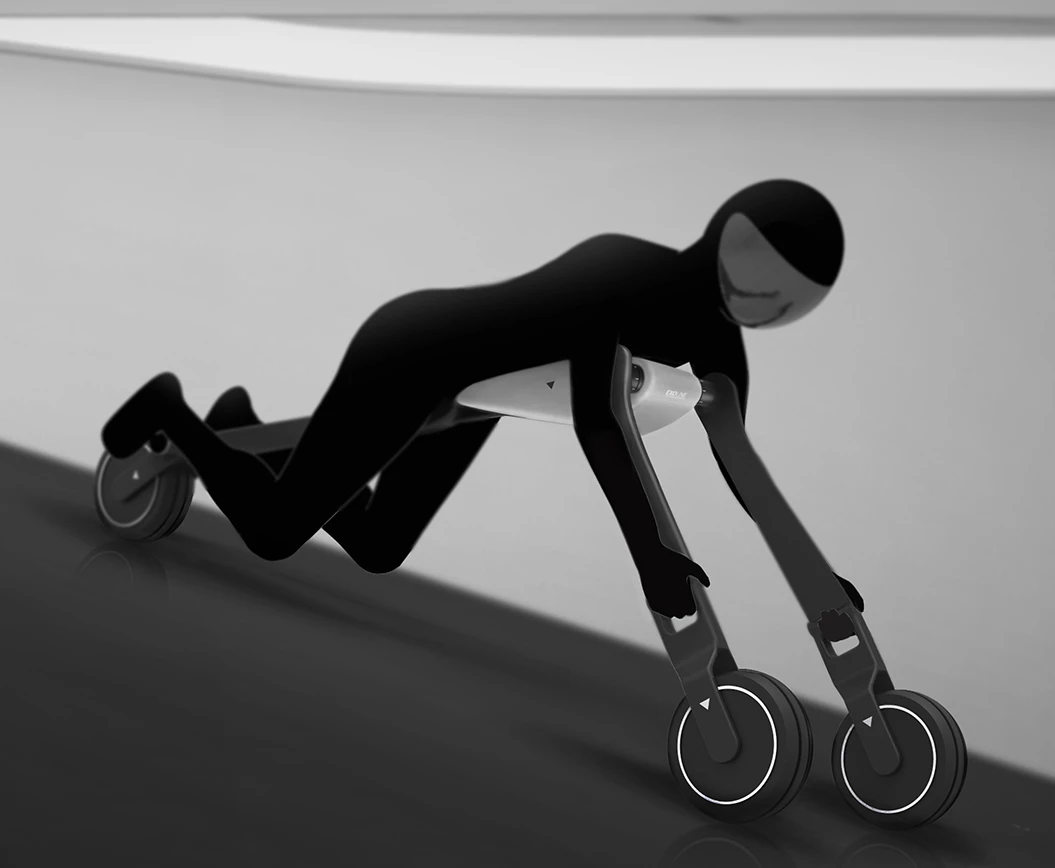
Your feet go on a pair of tiny pegs beside the rear wheel, and your arms move forward to grasp the two front wheel struts, which allegedly "follow the body movements, and translate those into directional commands for the vehicle."
Or maybe they don't; Mocellin also says "the vehicle is controlled by a common joystick." We can't see this joystick in the renders or prototype shots, so our imaginations are running wild as to where it's hidden and with what exactly one operates it.
The Exo-Line is powered by a lithium-ion battery, and driven by an in-wheel hub motor, although it's unclear which wheel that might be, since in some of the renders, the rear wheel appears to be capable of swiveling on a caster-type arrangement.
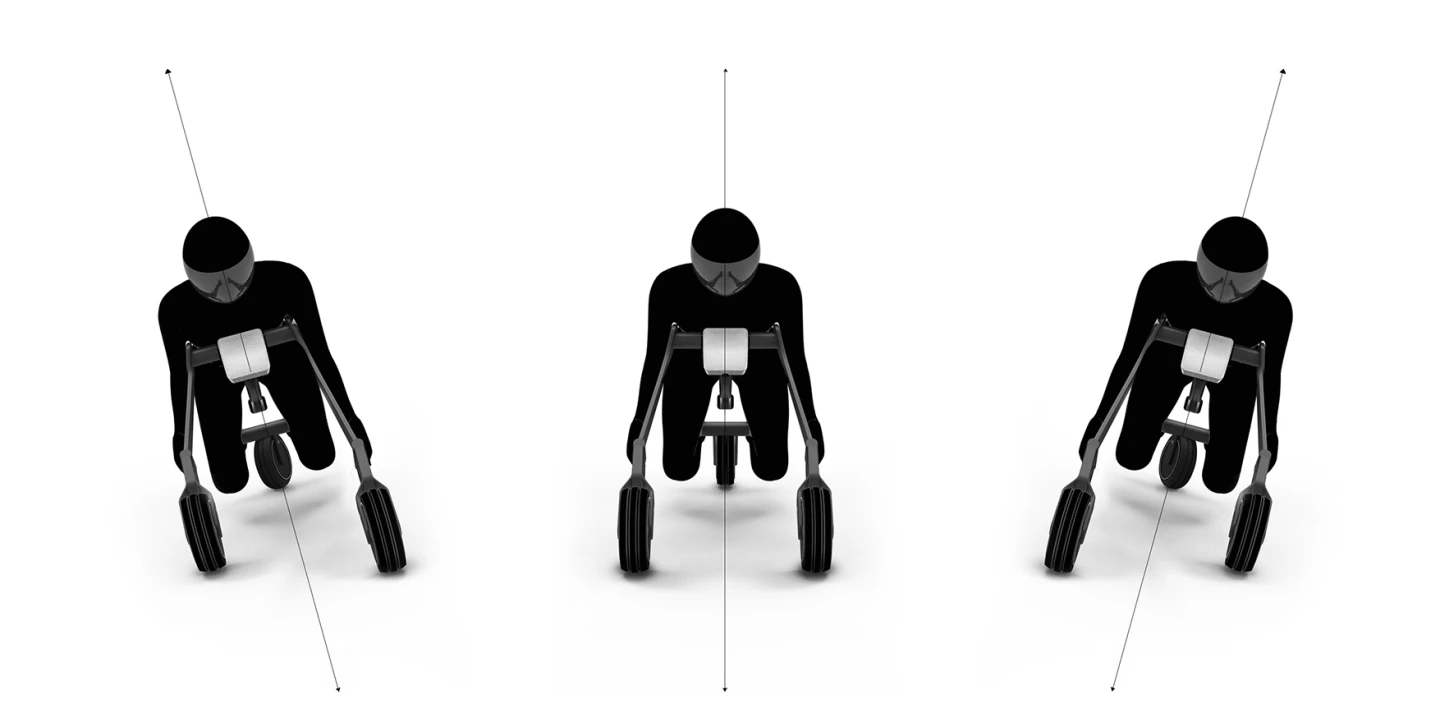
“I was inspired to design a vehicle that takes us back to the basics of a physically engaging riding experience,” states Mocellin. “The aim was to minimize the number of components in the vehicle to glide quickly over the road for a pure sense of freedom and connection with the vehicle, following the pure instinct to steer, accelerate and brake. Wheels and cockpit follow the body’s movement when driving and give the driver a dramatic feeling of being a part of the vehicle."
When you're not feeling dramatic and being a part of the vehicle, it folds up into a kind of backpack configuration. We can't immediately identify any straps at this stage of the game, but there does appear to be an ergonomically-shaped buttock pad of sorts, and that's always nice.
We'll admit we're unacquainted with relevant industry standards around what exactly qualifies a vehicle as "wearable," but we assume Mocellin is. And the Exo-Line really looks little more intrusive or uncomfortable than a small ladder or large sewing machine strapped to your back.
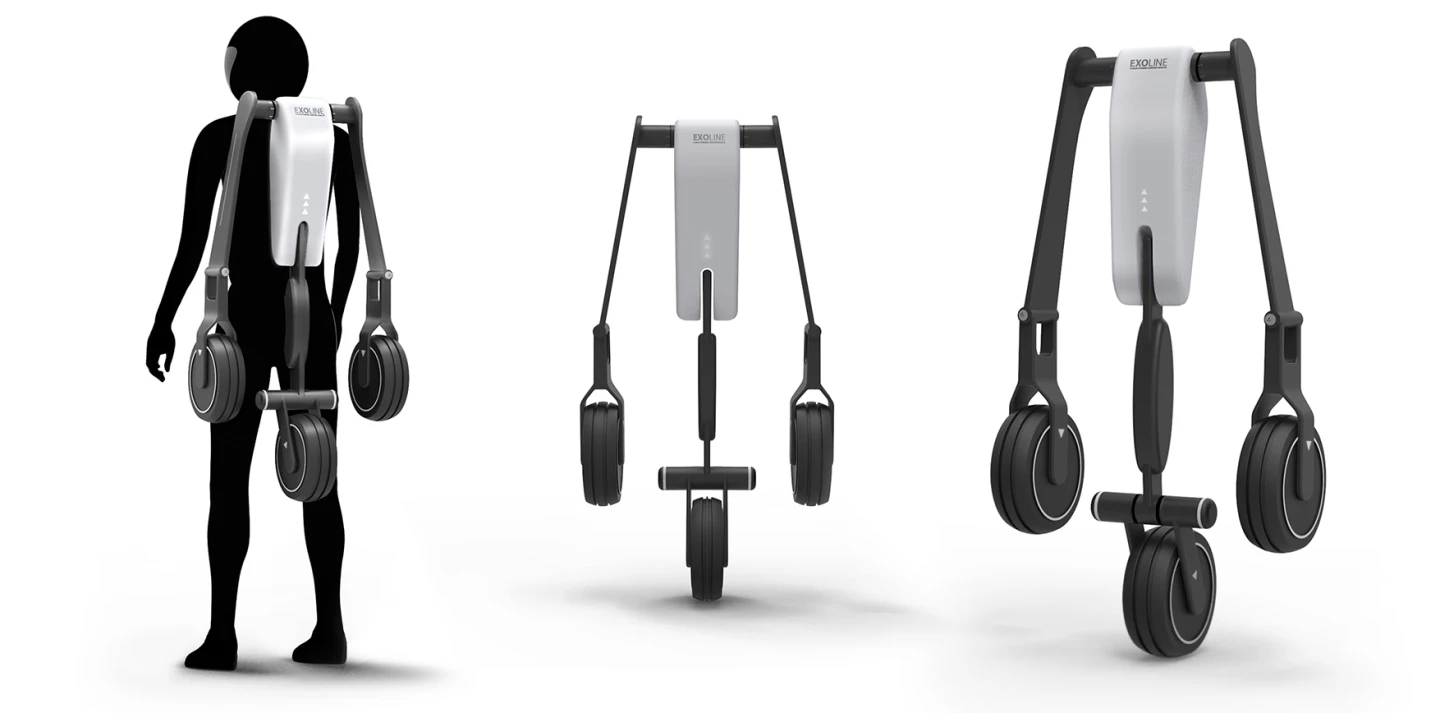
Mocellin has built a prototype, using "off the shelf parts," and you can see it in action, albeit not in great detail, in eight out of a total of 22 seconds of the video below, the rest being devoted to a series of peaceful mountain shots that really add some nice ambience to the piece.
“It’s like flying over the road," says Mocellin, "but stable because the machine supports the rider’s body, but it gives a totally new interaction with the vehicle.”
This totally new interaction with the vehicle is probably best illustrated with a close-up frame from the video. Now, I've always felt that motorcycle racing is an infinitely better spectator sport than car racing, because a rider's body language can speak a thousand words to really humanize the experience. And the same is very much true for the Exo-Line; I can really feel this riding experience deep in my humanity.
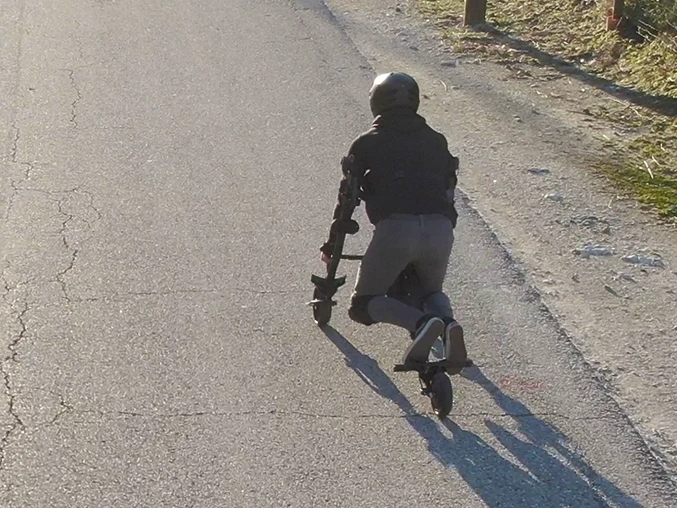
The designer is tight-lipped at this stage (or perhaps just still struggling to speak) around peak power, top speed, range, price, production plans and indeed how heavy the Exo Line will be when you're wearing it, as opposed to it wearing you. He also makes no mention of any kind of suspension system, so considering the delicate, mashable, less robust nature of some key areas of body contact, it's perhaps pertinent to recommend you aim it at smoother surfaces and don't go jumping it off curbs.
Source: Exo-Line









